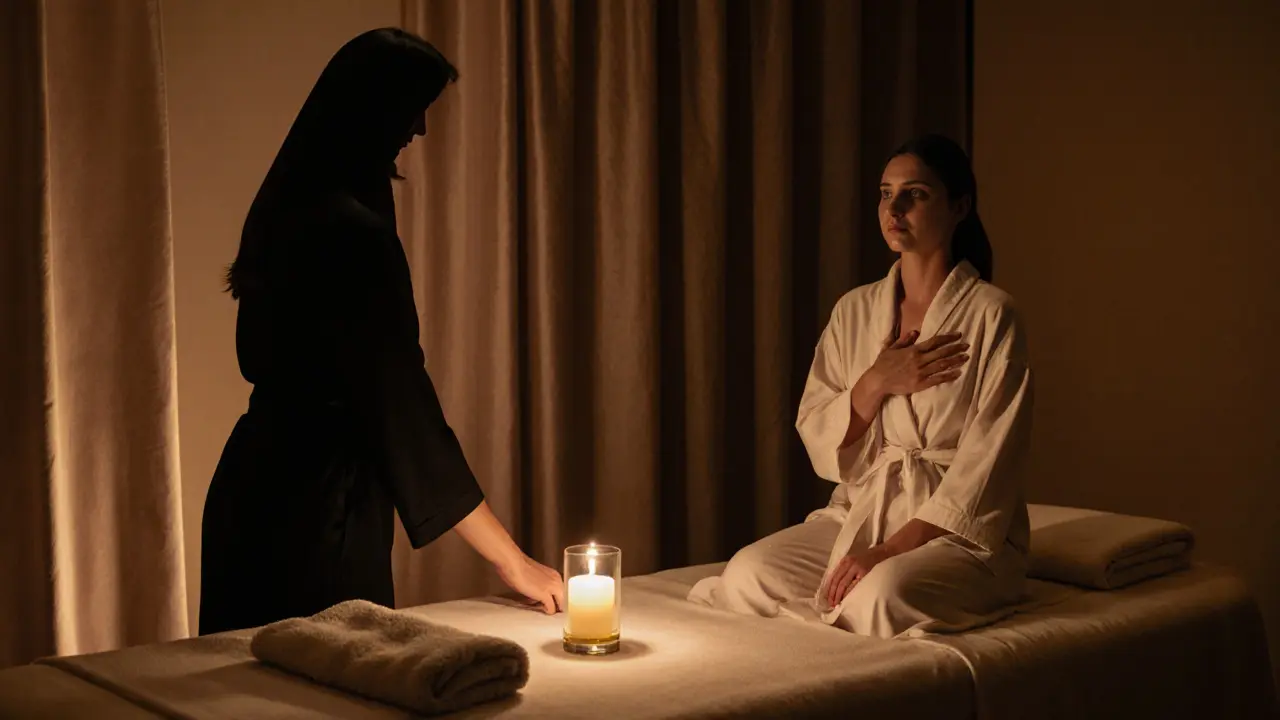Dubai wellness therapy: What it really means and how it works
When people talk about Dubai wellness therapy, a discreet form of body-centered care focused on relaxation, nervous system regulation, and emotional safety. Also known as sensual massage, it's not about sex—it's about presence, touch, and healing in a city where stress runs high and silence is the norm. This isn’t the kind of wellness you see on Instagram. No coconut oil, no chanting, no yoga mats. It’s quiet. It’s private. And for many—expats, executives, and locals alike—it’s the only way they get real relief.
At its core, Dubai wellness therapy, a discreet form of body-centered care focused on relaxation, nervous system regulation, and emotional safety. Also known as sensual massage, it's not about sex—it's about presence, touch, and healing in a city where stress runs high and silence is the norm. This isn’t the kind of wellness you see on Instagram. No coconut oil, no chanting, no yoga mats. It’s quiet. It’s private. And for many—expats, executives, and locals alike—it’s the only way they get real relief.
What makes this different from a regular massage? It’s the intention. Therapists here aren’t just moving muscles—they’re helping people reconnect with their bodies after years of emotional suppression, cultural pressure, or burnout. Many clients come in with chronic tension, anxiety, or just a deep sense of disconnection. The sessions don’t involve nudity or sexual acts. But they do involve deep, intentional touch that resets the nervous system. Think of it like a reset button for your body—no drugs, no talk therapy, just stillness and pressure that says, "You’re safe here."
Therapeutic touch, a hands-on method used to reduce stress, improve circulation, and restore body awareness. Also known as sensory integration, it’s the foundation of this work. Studies on touch-based therapy show it lowers cortisol, increases oxytocin, and helps people feel grounded. In Dubai, where public displays of emotion are rare, this becomes a lifeline. And it’s not just for men. Women use these services too—often quietly, often alone—because they need to feel held without judgment.
Then there’s body awareness, the ability to recognize physical sensations, emotional cues, and tension patterns in the body. Also known as interoception, it’s something most people lose over time—especially in high-pressure environments like Dubai. When you’re constantly on guard—watching what you say, how you act, who you’re seen with—it’s easy to stop listening to your own body. Wellness therapy brings that back. Clients report feeling more present, sleeping better, even noticing changes in their relationships. One client told me he stopped taking anxiety meds after three sessions. Not because he was cured—but because he finally felt like himself again.
And let’s be clear: this isn’t illegal. Not the way people think. There are licensed practitioners who work within cultural boundaries. They don’t advertise. They don’t use apps. They rely on word-of-mouth from people who’ve been there. The real risk isn’t the service—it’s the misinformation. Many websites sell fantasies: "pornstars," "call girls," "secret parties." But the truth? The most powerful healing in Dubai happens in quiet rooms, with no cameras, no names, no hashtags.
That’s why the posts below matter. They don’t sell fantasy. They tell real stories—about stress relief, about body awareness, about how people in Dubai are quietly redefining what wellness means when the rules are strict but the need is real. You’ll find guides on how to prepare for your first session, how to spot a legitimate provider, and how this work actually changes lives. No fluff. No hype. Just what works.
